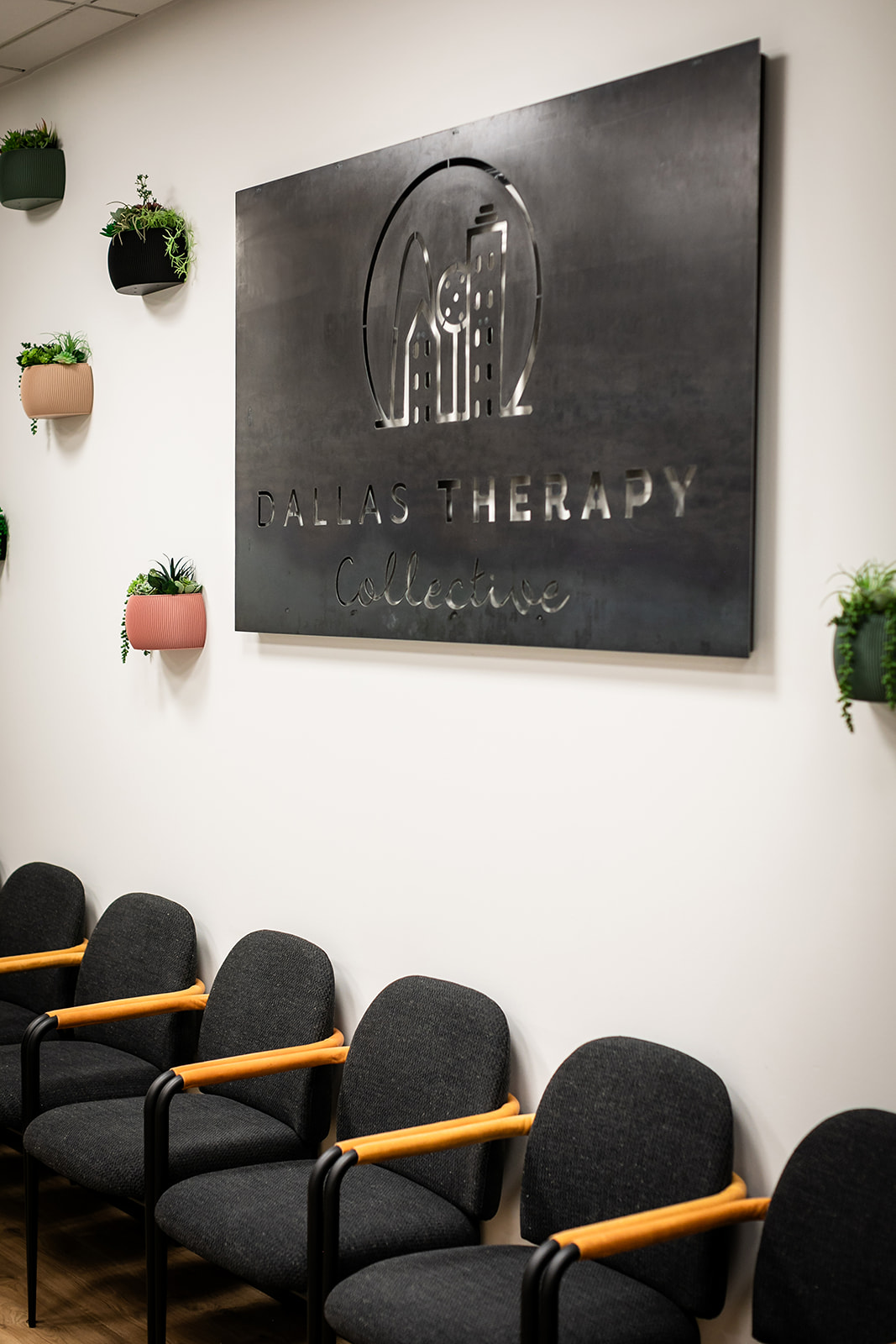Therapy for Overcoming Depression
Dallas Therapy Collective
You're Not Sure How You'll Get Through Another Day
Dallas Depression Therapist
Those of us who suffer from depression can have a hard time simply “making it through another day.” Sometimes it feels as though you can’t muster up enough energy to get out of bed…or get the mail…or get gas…or go to the grocery store. It’s as though the depression cloud follows you around, making it impossible to complete (or, sometimes, even attempt) everyday tasks. Sometimes it feels like you’re caught in quicksand, unable to move. You’re stuck. The thought of making it through a to-do list is daunting.
Your emotions are incredibly scattered. Why can’t I control them? Didn’t I used to have control over them? What has changed?

Symptoms of Depression
You wonder:
- Why do I cry over things that aren’t usually sad?
- Why do I lose my temper and get mad over things that don’t usually irritate me?
- Why can’t I think clearly?
- Why do I have difficulty concentrating, making decisions and remembering things?
- Why can’t I get restful sleep, or any sleep at all, or why am I sleeping all the time?
- Why can’t I enjoy things that usually make me happy?
Others are beginning to notice a change in you. Your boss wonders why you are making so many mistakes and seem disconnected. Your friends wonder why you keep canceling plans…again. Your family notices you are withdrawing and not interacting as usual.
This is depression. It is silent and creeps in like a quiet burglar, ready to steal the things we hold dear. It is a dark shadow that plagues our lives. It does not discriminate. It can affect men, women, and children across all cultures and backgrounds. It can manifest itself in many different ways. Some may experience apathy, extreme sadness, fatigue, trouble concentrating, difficulty remembering things, or feelings of worthlessness, while others may be confronted with substance use, irritability, restlessness and even thoughts of suicide. Dallas Therapy Collective is here to help.
Does Therapy Help Depression?
Yes. Although it might be hard to imagine when your world feels void of color, depression is quite responsive to treatment and a more vibrant life can be possible for you. Learning how depression feeds your negative thoughts and chokes out your positive ones can empower you to cope differently. What might life be like for you if you could step out from under depression’s cloud?
Depression is often our body’s way of getting our attention. Perhaps something is going on in your life currently that needs to be addressed. Maybe your depression is a response to a life transition, grief, breakup, or stressful circumstance that needs to be attended to.
Unfortunately, when our brain tries to get our attention through symptoms of depression, it begins to filter out the positive thoughts and feelings and focuses on the negative. Over time, this negative feedback loop can become daunting. However, our brains can be re-trained. Through learning how to process emotions and engaging in more effective coping skills, the brain can learn to process information in a more balanced way, often reducing depressive symptoms.
Depression doesn’t make you weak or incapable – it simply means your body and mind need some extra attention. Depression is also extremely common. In fact, more than 16 million adults in the United States are diagnosed with depression each year.
Sometimes cultural messages can tempt us to feel ashamed of our depression, but it is nothing to be ashamed of. Just like medical problems, depression needs to be addressed. Even the most severe cases can be treated. The earlier you seek treatment, the more effective it is. What would your life be like if you could extinguish your depression symptoms?
We are here to help. Reach out to our team today.
There’s no need to keep suffering.
Get counseling for depression
Overcoming depression is possible.
What are you missing out on in your life right now? What is depression robbing you of? It might even be hard to identify because depression clouds our minds, making us the center of our own worlds, even if we don’t want to be. This is why seeking support from someone who specializes in depression can be helpful.
Your therapist can offer perspectives that you may not come to on your own in your depressed state. They’ll also help you learn to wash away the smog of depression through understanding your particular experiences, feelings, and history. They’ll help you determine how your depression developed and equip you with tools to manage your emotions and your life in a way that works better for you.

You might be wondering, will counseling help?
Do I have enough time or money for depression therapy in Dallas?
This is a very common question. Time and money are things we hold dear and spend at our leisure or on necessities. They are often barriers when trying something new. Ask yourself, “What is depression costing me now?” Are you currently losing time to worries, poor self-esteem, exhaustion, and unresolved pain?
When we spend our precious time or hard-earned money, we are making an investment and we want to maximize our returns. Investing in yourself does require sacrifice. However, the return can be transformative. Counseling for depression can yield more satisfying relationships with yourself and others, increased mood, and increased energy and confidence. What is it worth to you to invest in your quality of life?
What if talking about my depression makes me more depressed?
This is a common myth. Some people do experience a temporary period where symptoms feel worse when they begin facing feelings they have avoided. The symptoms have been avoided or suppressed for quite a while, and bringing them to the surface might feel uncomfortable. Learning how to address the agonizing feelings, rather than avoid them, can help reduce your overall suffering. Therapy can help isolate some of your maladaptive coping and assist in retraining your brain to respond differently. Many people develop negative thinking patterns while trying to cope with depression symptoms, and your therapist can help change the way you view yourself and your world. Engaging in the process of therapy for depression will likely result in decreased symptoms as you express your feelings and consider more adaptive ways of coping.
Maybe I can get better on my own. I'm doing just fine without depression therapy.
Perhaps you have lived with depression for a while and you’re comfortable with the status quo. Maybe although you are frustrated by your depression, it’s also familiar and perhaps even comfortable. You’re wondering if it will just “go away” on its own or if things will naturally get better. What we know about depression is that it often needs some kind of intervention to adjust its course. Counseling for depression can be just the intervention that helps equip you with proactive coping mechanisms. As you get an outsider’s perspective to help you explore your thoughts, feelings, and experiences, you can learn to cope in ways that fit you better and help you to manage your moods more effectively. Your therapist will also help you to know the signs of when your depression is returning so that you can be more proactive the next time around, reducing your chances of slumping into another depressive state in the future. Counseling for depression can increase your awareness and coping skills for more effective life-long mood management.
You Can Learn To Manage Dealing With Depression
Depression Counseling in Dallas, TX
Depression is one of the main reasons that people seek counseling. At Dallas Therapy Collective, we treat depression with a holistic perspective. We will help you examine your thoughts, your feelings, and your behaviors related to your depression symptoms.
Your therapist will conduct a thorough assessment of your symptoms and collaborate with you to make recommendations that fit your unique situation. This may include psychotherapy, medication, yoga therapy, or other ways to better help you manage your depression. There is no one-size-fits-all mentality.
Let us help you find a brighter side of life.
